第77章
It was the day after Doune Fair when my story commences. It had been a brisk market. Several dealers had attended from the northern and midland counties in England, and English money had flown so merrily about as to gladden the hearts of the Highland farmers. Many large droves were about to set off for England, under the protection of their owners, or of the topsmen whom they employed in the tedious, laborious, and responsible office of driving the cattle for many hundred miles, from the market where they had been purchased, to the fields or farmyards where they were to be fattened for the shambles.
The Highlanders in particular are masters of this difficult trade of driving, which seems to suit them as well as the trade of war.
It affords exercise for all their habits of patient endurance and active exertion. They are required to know perfectly the drove-roads, which lie over the wildest tracts of the country, and to avoid as much as possible the highways, which distress the feet of the bullocks, and the turnpikes, which annoy the spirit of the drover; whereas on the broad green or grey track which leads across the pathless moor, the herd not only move at ease and without taxation, but, if they mind their business, may pick up a mouthful of food by the way. At night the drovers usually sleep along with their cattle, let the weather be what it will; and many of these hardy men do not once rest under a roof during a journey on foot from Lochaber to Lincolnshire. They are paid very highly, for the trust reposed is of the last importance, as it depends on their prudence, vigilance, and honesty whether the cattle reach the final market in good order, and afford a profit to the grazier. But as they maintain themselves at their own expense, they are especially economical in that particular. At the period we speak of, a Highland drover was victualled for his long and toilsome journey with a few handfulls of oatmeal and two or three onions, renewed from time to time, and a ram's horn filled with whisky, which he used regularly, but sparingly, every night and morning. His dirk, or SKENE-DHU, (that is, black-knife), so worn as to be concealed beneath the arm, or by the folds of the plaid, was his only weapon, excepting the cudgel with which he directed the movements of the cattle. A Highlander was never so happy as on these occasions. There was a variety in the whole journey, which exercised the Celt's natural curiosity and love of motion. There were the constant change of place and scene, the petty adventures incidental to the traffic, and the intercourse with the various farmers, graziers, and traders, intermingled with occasional merry-makings, not the less acceptable to Donald that they were void of expense. And there was the consciousness of superior skill; for the Highlander, a child amongst flocks, is a prince amongst herds, and his natural habits induce him to disdain the shepherd's slothful life, so that he feels himself nowhere more at home than when following a gallant drove of his country cattle in the character of their guardian.
Of the number who left Doune in the morning, and with the purpose we have described, not a GLUNAMIE of them all cocked his bonnet more briskly, or gartered his tartan hose under knee over a pair of more promising SPIOGS, (legs), than did Robin Oig M'Combich, called familiarly Robin Oig, that is young, or the Lesser, Robin.
Though small of stature, as the epithet Oig implies, and not very strongly limbed, he was as light and alert as one of the deer of his mountains. He had an elasticity of step which, in the course of a long march, made many a stout fellow envy him; and the manner in which he busked his plaid and adjusted his bonnet argued a consciousness that so smart a John Highlandman as himself would not pass unnoticed among the Lowland lasses. The ruddy cheek, red lips, and white teeth set off a countenance which had gained by exposure to the weather a healthful and hardy rather than a rugged hue. If Robin Oig did not laugh, or even smile frequently--as, indeed, is not the practice among his countrymen--his bright eyes usually gleamed from under his bonnet with an expression of cheerfulness ready to be turned into mirth.
The departure of Robin Oig was an incident in the little town, in and near which he had many friends, male and female. He was a topping person in his way, transacted considerable business on his own behalf, and was entrusted by the best farmers in the Highlands, in preference to any other drover in that district.
He might have increased his business to any extent had he condescended to manage it by deputy; but except a lad or two, sister's sons of his own, Robin rejected the idea of assistance, conscious, perhaps, how much his reputation depended upon his attending in person to the practical discharge of his duty in every instance. He remained, therefore, contented with the highest premium given to persons of his description, and comforted himself with the hopes that a few journeys to England might enable him to conduct business on his own account, in a manner becoming his birth. For Robin Oig's father, Lachlan M'Combich (or SON OF MY FRIEND, his actual clan surname being M'Gregor), had been so called by the celebrated Rob Roy, because of the particular friendship which had subsisted between the grandsire of Robin and that renowned cateran. Some people even said that Robin Oig derived his Christian name from one as renowned in the wilds of Loch Lomond as ever was his namesake Robin Hood in the precincts of merry Sherwood. "Of such ancestry," as James Boswell says, "who would not be proud?"